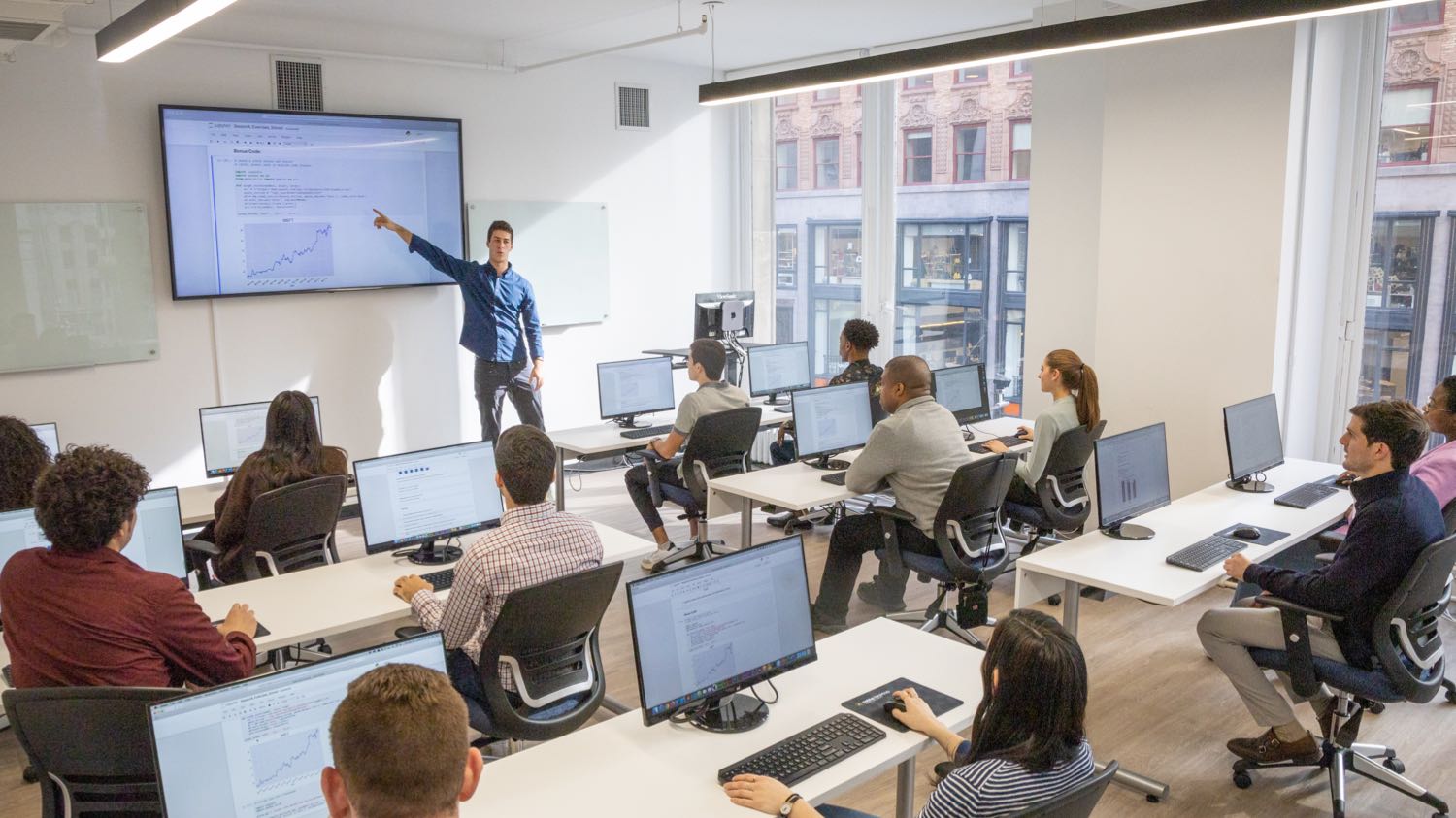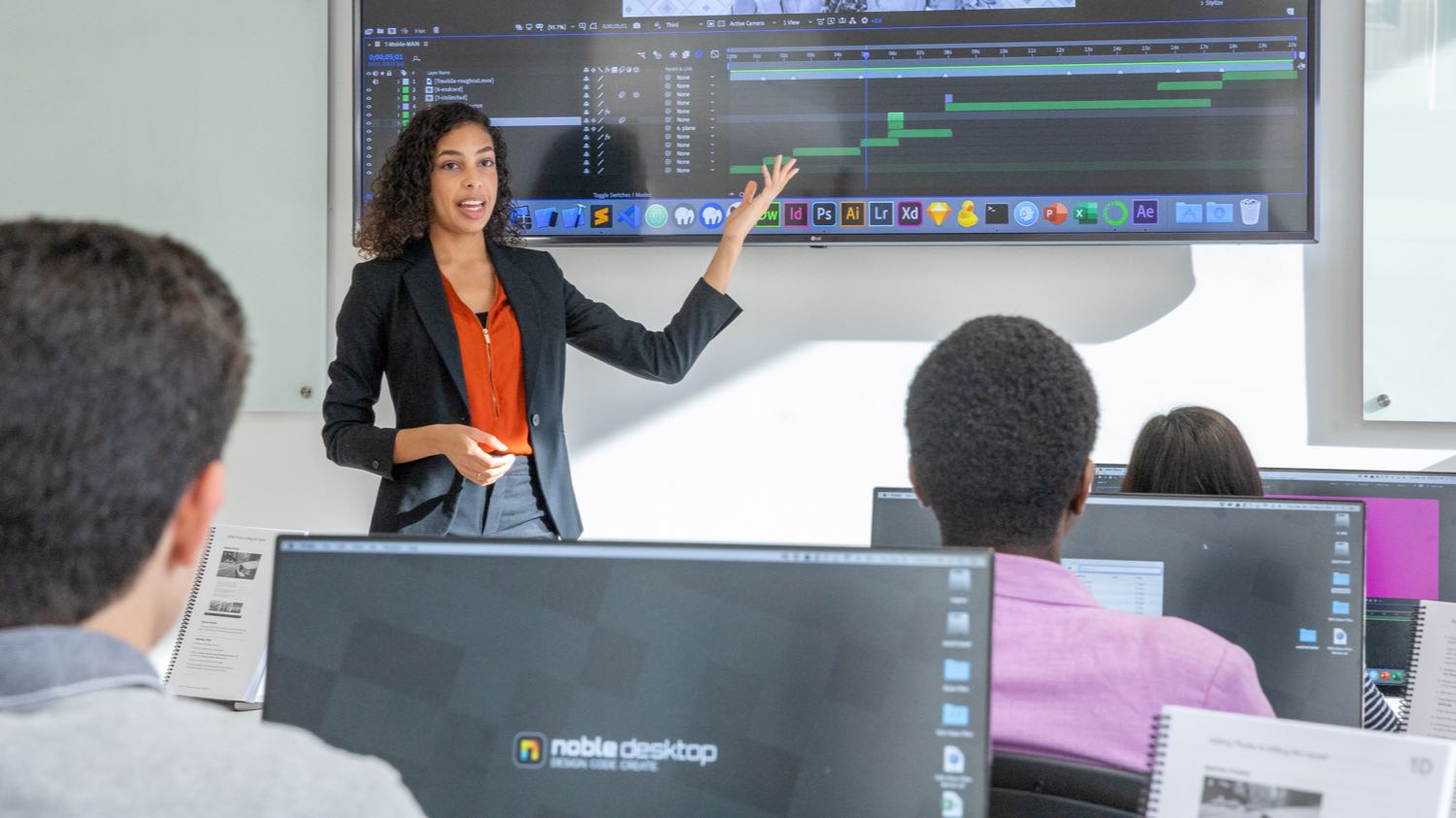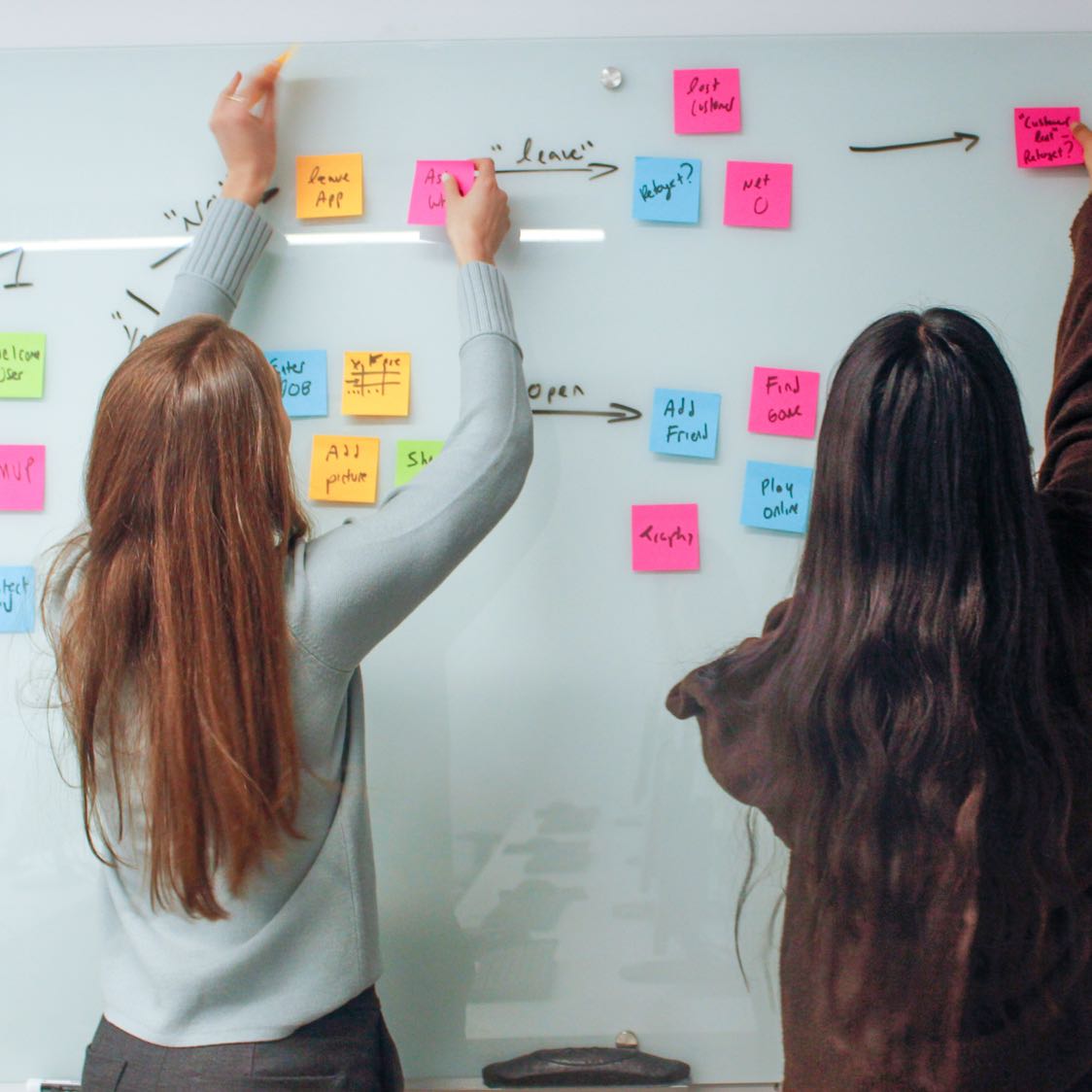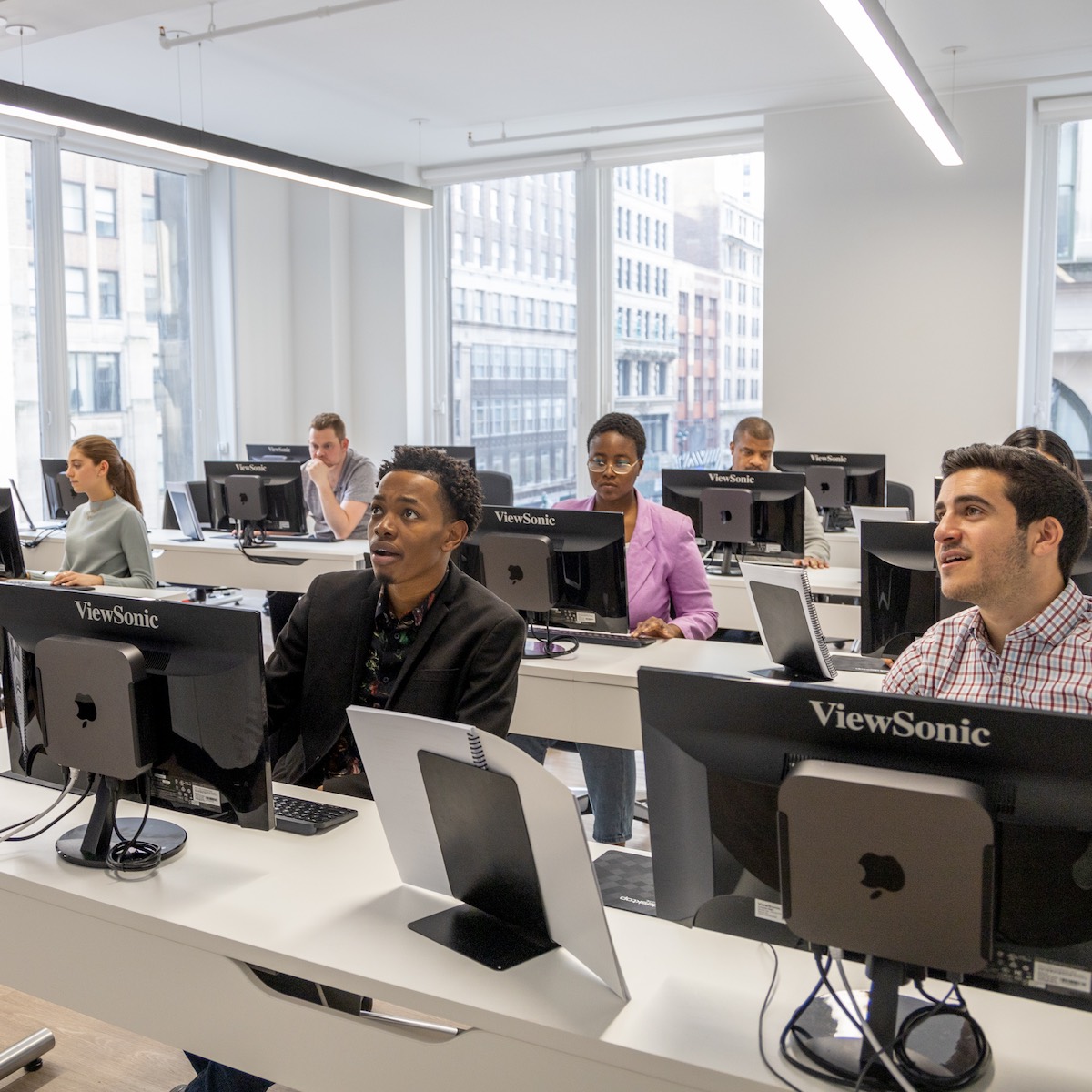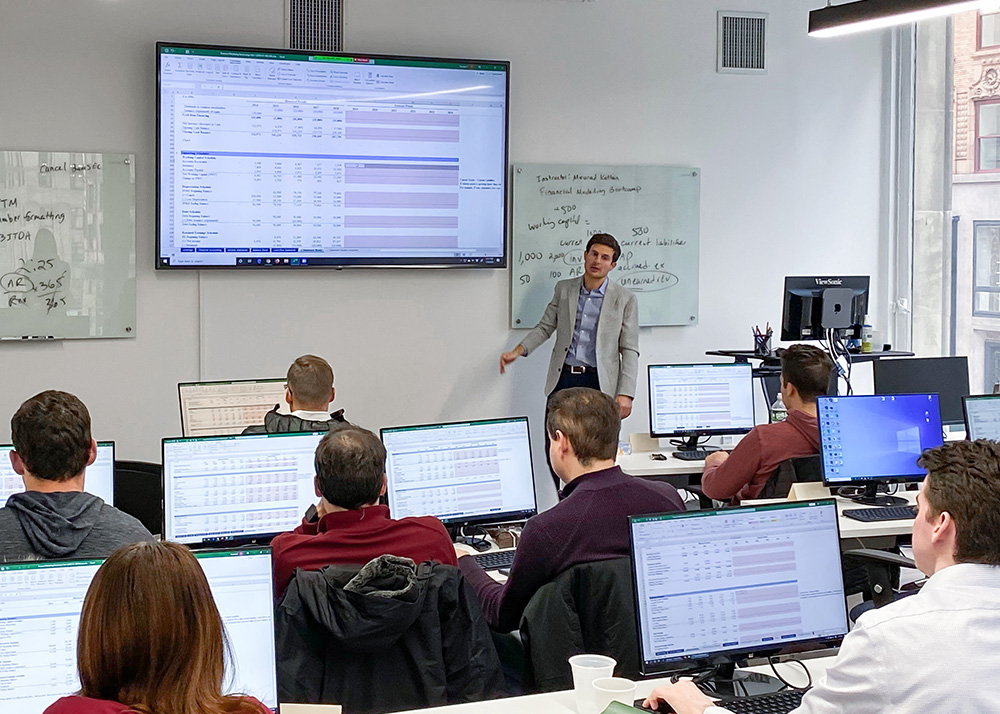What is Coding?
Computers and other technological devices don’t understand human language, so a translator is needed. That translator is what we call coding. Coding takes human input and turns it into binary commands, or numerical and alphabetic codes that computers and other machines can understand. With this, programmers and developers can give our devices instructions and have them complete specific tasks. They work with code to ensure that the technology performs as expected. Most of this work can be done with the help of programming languages, which are used to help outline a specific set of instructions for a device, application, or software to run. Despite how large and advanced the world of programming is, coding and programming languages are relatively recent discoveries. Much of what we use today in modern coding has been discovered in the last 100 years.
The history of code begins in 1843 when a British Aristocrat named Ada Lovelace created the first algorithm to help enhance a basic computational machine. Until then, machines had been used for simple calculations. When Ada realized that the machine could be used for general purposes, she immersed herself in her studies and eventually came up with the idea that numbers could be used as a representation of things. Programming Languages were born from this thought process. With the help of numbers, humans could communicate thoughts and ideas to non-human entities. This concept carried us into the 20th century, during the large technology boom of the Second World War. Alan Turing, the scientist responsible for dissecting Nazi Germany’s Enigma code machine, published a paper that conceptualized the first computer. It was imagined as a universal machine that could follow instructions. We moved closer to that vision in 1940 when Konrad Zuse created the first programming language, Plankalkul, which stored code and helped automate routine, repetitive tasks on certain devices. Over the next few decades, some of the world’s earliest programming languages were developed, including COBOL, BASIC, and PASCAL. It only took a few more years for our modern, and popular programming languages to be developed. C, C++ SQL, Python, JavaScript, and many other recognizable languages were functional by 1995, and have been developed, perfected, and used to help advance technology ever since.
The world of programming has evolved rapidly in the 21st century. Computers have become an everyday part of our lives, and vital to who we are. What was once only imagined is now commonplace. Humans have created an array of apps and devices that run on code. There are hundreds of programming languages that can help automate any process. Our phones, tablets, televisions, gaming systems, and even everyday appliances like dishwashers and refrigerators, rely on code to function. There is a regular need for programmers in any industry that uses technology, which is an overwhelming amount of them. Learning coding is a valuable and worthwhile skill, as it can fulfill a wide range of professional and personal goals. From helping train Artificial Intelligence (AI), to building a self-driving car, coding professionals are a large part of our technological advancements. They play a big role in the everyday comforts we experience through our machinery and technology. Coding can be used as a stepping stone into other Computer Science careers and can open the doors to many unique job opportunities. Coding is how you can learn more about the world around you, while also contributing to the rapid technological growth in modern society.
Why Learn Coding?
Coding isn’t just for those who want to earn a job in a technology-related field. There are many personal and professional reasons to take the plunge and learn this valuable skill. The biggest benefits of learning how to code include soft skills, or your interpersonal, social, and communication abilities. When you learn to code, you are learning how to communicate more effectively, improve your analytical thinking, and increase your problem-solving abilities. Learning to code is a lot like learning a foreign language. It requires you to interact with a device that does not speak the same language as you. Coding specialists can expect to gain useful hands-on experience with troubleshooting and attention to detail. If there is one mistake in the code, an entire device may be non-functional, a situation that regularly exposes programmers to high-stakes scenarios. Though coding may seem like a strictly technological skill, there is a lot of overlap between the things you learn, and the general skills you use in your day-to-day life.
Coding can help you accomplish personal goals. Modern technology is built around websites and the internet. Social media has been a prevalent part of our lives for decades. Learning how to use code and programming languages will allow you to build your own website. It can also help you create applications to manage and curate your social media pages, among other things. There are communities dedicated to learning more about coding and programming and joining these communities can help you build up your network. An online community is a great place to brainstorm new ideas or collaborate on unique projects. Websites like Codementor are built around real-world mentorship through programming projects. There are fun activities like building custom Google Maps themes or compiling a list of animal shelters and their available cats and dogs for adoption. The possibilities for fun coding projects are endless, and with the many platforms that host communities of experienced programmers, picking up this skill is easier now than ever before.
There are also many professional benefits to learning code. Coding has recently become a critical career skill. Those who have experience in coding can access many of the highest paying careers in Technology, including Software Engineer Management, Database Management, or Mobile Application Development. Learning to code can be done in many formats: self-learning, short courses, certificate programs, bootcamps, or even a full degree. No matter where you learn the skill, being proficient in programming can open the door to a career in many industries. Software Development is a rapidly growing market and is expected to create more jobs than many other occupations in the coming years. When you learn coding, you are learning a skill that is currently in high demand. Even if you do not join a tech-based career, an understanding of programming and coding is incredibly useful. It can help your application stand out in other industries, enhance soft skills that are relevant in any situation, and streamline work processes so that you can accomplish your goals more quickly. Coding will allow you to grow personally and professionally and can be used overall to simplify your life.
What Will you Learn in a Coding Summer Program
Coding summer programs provide an opportunity for you to learn computer science skills in a fun, engaging environment. They can be taken online or at home and can give you an inside look into the culture of coding. Through a coding summer program, you can build a portfolio while immersing yourself in diverse fields such as Artificial Intelligence (AI), robotics, and even video game coding. Whatever your interests in computer science, there are summer programs that can offer unique ways to get involved. Depending on the host of the program, there are also amenities offered, like the chance to live on a college campus, commute to a technological institute, or even work in a professional environment alongside industry professionals to get a taste of what becoming a professional coder might look like. Coding programs are a great place to make connections with other like-minded individuals. They often provide mentorship opportunities where college students, instructors, or other experienced individuals can help guide you through the basics of coding and programming. This one-on-one guidance can help boost learning significantly for those who enjoy consistent feedback. The connections can also be used as a transition into new programs, certificates, or degrees, and can give you a massive boost in your coding journey.
These programs offer a wide range of technical skills in coding and programming. The goal is to help you become proficient in these areas. One of the more commonly taught skills is programming languages. A summer program can not only introduce you to important languages, such as Python, Java, or C++, but it also allows you to use those languages in real-world projects alongside your mentors and peers. Depending on the languages you learn, you may pick up skills associated with that language. For example, when learning Python, the program may also cover graphing, data input, and data analysis. For Java, you may notice more object-oriented programming. It’s not uncommon for summer programs to review core concepts like algorithms, data structures, and the foundations of good, strong code. Hands-on projects may include web development, video game design, cybersecurity, or even working with AI. Individual programs will highlight specific areas of the coding industry. When choosing a summer program, checking the curriculum can give you better insight into the technical skills that you will learn, and whether those skills align with your professional and personal goals or overall interests.
In addition to technical skills, you can learn a variety of soft skills through a summer program. These skills are essential to the tech industry, but can easily be used in a diverse range of contexts. Communication skills are incredibly important in such a collaborative environment. These skills are often developed through project-based learning and hands-on team projects where you and your peers will have to collaborate to problem-solve and write efficient, effective code. Critical thinking skills are also valuable in this industry, as many real-world problems require unique and innovative solutions. You may notice that throughout a program, your time management and organization skills improve and that your attention to detail is also stronger due to your experiences with programming. These non-tech skills are associated with learning code. Certain programs may highlight specific soft skills more than others. For example, a coding class that allows you to work on video games will focus specifically on creative coding. No matter which course you take, these soft skills can be carried into any line of work.
What Can You Do with Coding Training
You can do many things with coding training, especially early in your educational journey. Whether you are interested in pursuing a career in a specific field or are just looking for new hobbies, the world is an increasingly digital place and now is the perfect time to learn. The modern world has a large dependence on technology and machinery, which means that there is an even larger need for programmers and coders. With coding training, you can prepare yourself for the many opportunities in the world of computer science, or even in the diverse range of fields that generally rely on technology. This includes industries like education, finance, medicine, and even entertainment. Though these aren’t the traditional industries that come to mind when people think about programming, technology plays a large role in managing data and information in all of these fields. E-learning is big in education. Marketing relies on applications to reach potential customers. Even banks use data software to manage their clients. Most industries have jobs related to the maintenance of programs and software, and knowing how to code can give you access to these roles.
Coding training before college can help you gain more context on what to expect out of a related degree. Common majors that are a good option for coders and programmers include computer science, computer programming, computer engineering, and information technology. There are many more science, technology, engineering, and math (STEM) degrees that cover coding to help students better understand the software that they will be using for calculations, data management, and information storage. Having experience in coding before joining higher education will put you in the unique position of knowing a vital skill up front, and can help ease the transition into the collegiate sphere. If you decide to go to a trade school or take a certificate course, knowing the fundamentals of coding can make that process easier. It can also help you divert your energy to building on your skills as well as learning new skills. Upon completion of a degree or a certificate, coders and programmers excel in computer-based careers and often become web or software developers, database administrators, mobile app developers, and front-end developers. Non-traditional roles include project managers, recruiters, graphic designers, and technical writers. Coding is useful in many industries and is expected to provide more unique jobs over the coming decade.
Advantages of a Coding Summer Program
Coding summer programs offer several advantages that might make them an attractive option for coders and programmers. These programs offer an immersive and collaborative learning environment for those new to the skill. They provide resources that may not be accessible through self-learning, and a curriculum that can help optimize the development of crucial coding skills. Summer programs are often scheduled to align with a traditional academic calendar so that they fall during a free period, and the class sizes can be smaller than a traditional academic class which allows for more individualized focus and 1 on 1 support. Upon completion of the course, participants can use their experience on job hunting documents like a resume or a CV, or even their professional pages like LinkedIn or portfolio websites.
A coding summer program is also the perfect opportunity to gain hands-on experience and practical application of coding. Summer programs often focus on project-based learning, and provide unique coding challenges so that students can take their technical knowledge from theory to practice. This experience can help reinforce learned skills so that they can be used for personal and professional projects. Learning to develop mobile applications with languages like Java can help you create your own educational tools or productivity apps. With experience in HTML or CSS, you can build your own websites and web applications. When you’ve become proficient in coding, you can join hackathons or coding competitions, which can help you build a stronger portfolio. By participating in a coding summer program, you can gain technical knowledge and hands-on experience while building important relationships with peers, mentors, and industry professionals.
Best Coding Summer Programs for High School Students
If you are interested in joining an exciting, dynamic coding summer program, NextGen offers summer coding bootcamps for High School students. You can learn computer programming, web design, and even data science with the help of industry professionals who will teach you cutting-edge programming languages and technologies. These hands-on bootcamps will provide you with plenty of opportunities to use your coding and programming skills to do fun projects. Their live-online computer science summer certificate program is perfect for high school students who want to learn the fundamentals of programming in Java and Python. Data science and machine learning are also covered in the course and can help you get ahead in your computer science courses. This program is also offered in person for those who work best in an on-site learning environment.
Google’s Computer Science Summer Institute also offers a program geared towards high school seniors who have a knack for technology. This summer program includes a curriculum specially designed around projects that can help with computer science studies. Students will have access to daily development sessions that can prepare them for professional opportunities, and there are plenty of chances to directly interact with Google engineers. This can double as a networking opportunity for those that might be interested in Google’s internship programs, or career opportunities. This program is limited to those who are planning to attend a four-year institution in Canada or the United States, for a degree related to computer science, computer engineering, or software engineering.
The Coding School hosts an Emerging Technologies Summer Camp which brings supportive and accessible computer science education to K-12 students. This program focuses closely on skill building and professional development in emerging technologies like Artificial Intelligence, Big Data, and Quantum Computing. Their classical coding course trains students in building foundational Python skills, as well as introducing core concepts like variables, conditionals, booleans, loops, functions, and more. They also offer an Artificial Intelligence program that focuses more on coding for AI, with additional input from industry experts, an opportunity to learn more about AI-related career paths, and national lab tours and projects. Their Quantum Computing program will teach participants how to code on a quantum computer. While working alongside global quantum researchers, students will have access to workshops that teach them how to create and code quantum circuits while also learning basic information like qubits, quantum superposition, and quantum entanglement.
The U.S. Naval Academy hosts a Summer STEM program for students who are considering a career in coding, game development, or robotics. Students will design interactive and exciting STEM projects while learning from U.S. Navy faculty. This collaborative course encourages participants to create, build, and explore the world of STEM through reverse engineering, code writing, and academic modules and intramurals. There are also regular field trips, movie nights, and other social-focused activities scheduled into the curriculum. Through this program, participants can enhance their problem-solving skills, creativity, and teamwork.


